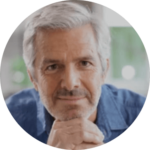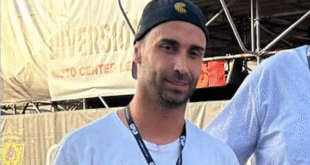Nearly one in three Spaniards believe extraterrestrial visitors have visited Earth at some time and that stars influence daily lives, while one quarter believe communication with spirits. Meanwhile, 17 per cent hold onto the belief that humans never set foot on the moon. Furthermore, vast majorities trust vaccines without question or attribute global warming directly to human activities; when experiencing serious illness they prefer hospital care rather than seeking alternative remedies such as homeopathy.
These are among the main conclusions from a BBVA Foundation study on science-based beliefs and alternative beliefs and practices, which explores their prevalence within Spanish society. Of particular note is’scientific populism’- the theory promoted by leaders like Donald Trump or Javier Milei- which puts common sense ahead of specialist knowledge. Overall, however, Spanish society trusts science.
Science was found to be the knowledge most relied upon and relied upon by 2,013 respondents for objectivity and reliability, capable of distinguishing what is true from what is false. Two out of three respondents believed science can explain most important things now or will in future; with scientists, doctors, technology experts being highly rated by this survey (over 8/10 rating); as opposed to astrologers, homeopaths or priests.
Confidence extends into practice on issues including medicine and climate change; for instance, 99% would visit a hospital or outpatient clinic for serious illness and up to 81% have “great deal or fair amount” confidence in vaccines — one of the main targets of denialists since the Covid pandemic began.
Regarding global warming, approximately 67% are certain it is caused by human activity; 18% attribute it to natural processes on Earth while 15% attribute both aspects. As for origin of humans themselves, about 70% believe evolution was their source while approximately 30% hold that God or a spiritual force created our world.
Relation to Political Ideas.
But within this overall picture of faith in science lie some intriguing conspiracy theories. As previously noted, one third of respondents are convinced of extraterrestrial visits – in contrast, almost two out of ten deny Neil Armstrong or any human has set foot on the moon – and influence of planets and stars on our daily lives; 24 per cent believe communication with spirits, 18 percent in magic and 14 per cent witches exist while 13% use healers to treat serious ailments while six per cent trust horoscopes while five avoid 13 as they believe it attracts bad luck while four per cent believe Earth itself exists as flat.
As for alternative health treatments, 31% have made at least occasional use of homeopathy, reflexology (foot and hand massage), reiki (a therapy designed to relieve stress by placing hands upon clients) or Ayurveda (an ancient form of alternative medicine from India). Most have used holistic healthcare practices as complementary remedies or preventive strategies, while only a minority have used them as replacement for medical interventions. 34% believe homeopathy should be funded by Spain’s Social Security system and in particular women aged 45-64% believe this. They trust its benefits more than men. Yoga has proven more successful at improving overall well-being than antidepressant medication in terms of general wellness.
These individuals usually fit a well-established profile: over 65-year old believers are usually religious and either hold extreme right beliefs or refuse to define their ideology in terms of ideology or political alignment.
1.
 Costa News Spain Breaking News | English News in Spain.
Costa News Spain Breaking News | English News in Spain.





